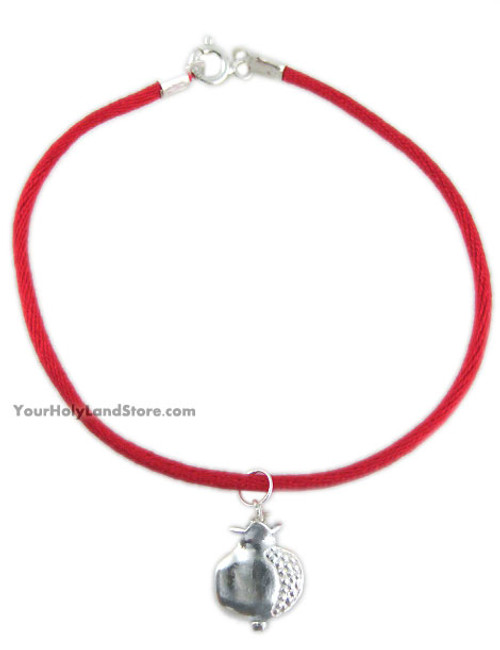- All metal parts are made from 925 Sterling Silver.
- The silver is actual silver, not bonded or plated.
- With pomegranate pendant
- Length 18cm/7inch
- Condition: new
Exodus 28:33-34 directed that images of pomegranates be woven onto the hem of the me'il ("robe of the ephod"), a robe worn by the Hebrew High Priest. Kings 7:13-22 describes pomegranates depicted on the capitals of the two pillars (Jachin and Boaz) which stood in front of the temple King Solomon built in Jerusalem. It is said that Solomon designed his coronet based on the pomegranate's "crown" (calyx). Jewish tradition teaches that the pomegranate is a symbol for righteousness, because it is said to have 613 seeds which corresponds with the 613 mitzvot or commandments of the Torah. For this reason and others, many Jews eat pomegranates on Rosh Hashanah. However, the actual number of seeds varies with individual fruits. It is also a symbol of fruitfulness. The pomegranate is one of the few images which appear on ancient coins of Judea as a holy symbol, and today many Torah scrolls are stored while not in use with a pair of decorative hollow silver "pomegranates" (rimmonim) placed over the two upper scroll handles. Some Jewish scholars believe that it was the pomegranate that was the forbidden fruit of the Garden of Eden. Pomegranate is one of the Seven Species (Shiv'at Ha-Minim), the types of fruits and grains enumerated in the Hebrew Bible (Deuteronomy 8:8) as being special products of the Land of Israel. The pomegranate is mentioned in the Bible many times, including this quote from the Songs of Solomon, "Thy lips are like a thread of scarlet, and thy speech is comely: thy temples are like a piece of a pomegranate within thy locks." - Song of Solomon 4:3.




